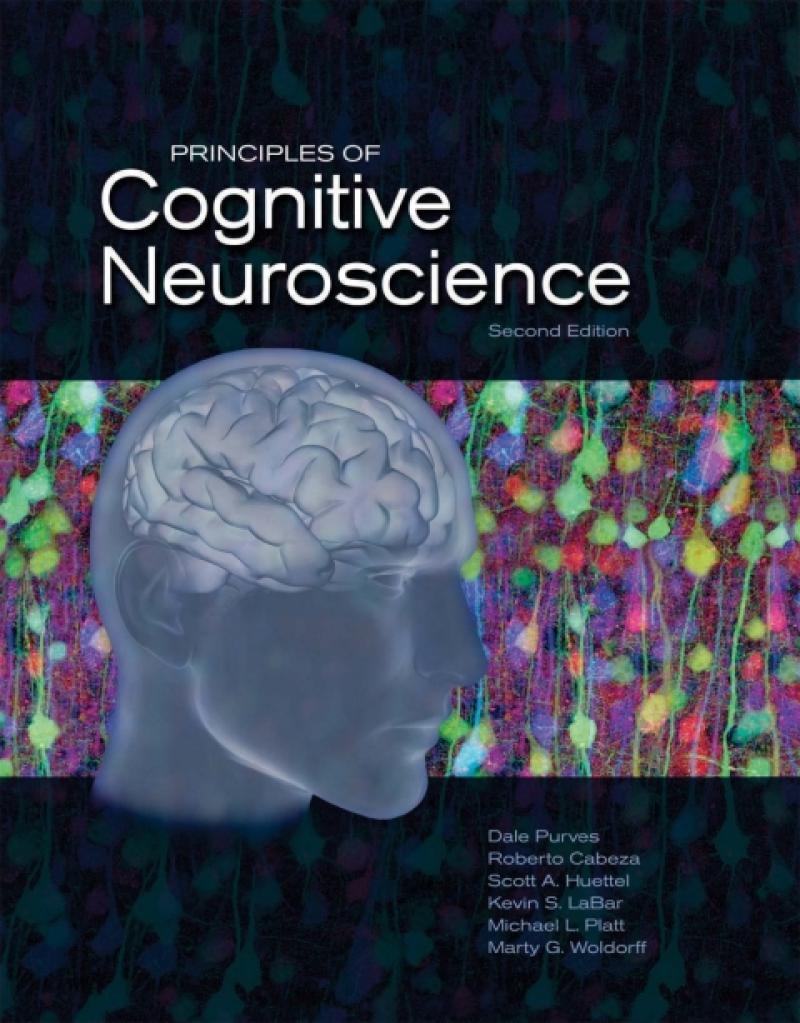The new and rapidly evolving field of cognitive neuroscience brings
together cognitive psychology and neuroscience, drawing conceptual and
technical elements from both these traditional disciplines. This union
has been motivated by the exciting possibility of better understanding
complex human brain functions that have puzzled thinkers for
centuries. The emergence of cognitive neuroscience as a discipline in
its own right over the last two decades is thus an expression of what
many see as the next logical step for both neuroscience and cognitive
psychology, driven by powerful new methods for studying the human
brain._Principles of Cognitive Neuroscience_, introduced in 2008, was
written to inform readers at all levels about the growing canon of
cognitive neuroscience, and to make clear the many challenges that
remain to be solved. Now, in this Second Edition, the authors--all
leaders in the field--offer what is in essence a completely new book:
*The 28 chapters of the original edition have been condensed and
combined to 15 chapters for the new edition. *The condensation makes
the topics covered easier to assimilate, and better suited to
presentation in a single-semester course. *Each chapter has been
updated to address the latest developments in the field, including
expanded coverage of genetics, evolution, and neural development.
*Introductory Boxes in each chapter take up an especially interesting
issue to better capture readers' attention. *An appendix reviews the
major features of human neuroanatomy and basic aspects of neural
signaling.As before, this edition includes an extensive glossary of
key terms. And, with every copy, we offer a fully upgraded version of
_Sylvius 4 Online_, which includes an interactive tutorial on human
neuroanatomy as well as a magnetic resonance imaging atlas of the
human brain.RESOURCES_For Students_COMPANION WEBSITEThe _Principles of
Cognitive Neuroscience_, Second Edition, COMPANION WEBSITE features
review and study resources to help students master the material
presented in the textbook. Access is free of charge and requires no
access code. The site includes: *CHAPTER SUMMARIES: Concise overviews
of the important topics covered in each chapter *FLASHCARDS: Flashcard
activities help students to master the extensive vocabulary of
cognitive neuroscience. Each chapter's set of flashcards includes all
the key terms introduced in that chapter. *ANIMATIONS: A collection of
detailed animations that depict some of the key processes and
structures discussed in the textbook. *ONLINE QUIZZES: For each
chapter of the textbook, the Companion Website includes a
multiple-choice quiz that covers all the main topics presented in the
chapter. Instructors may assign these quizzes, or they may be made
available to students as self-study tools. (Instructor registration is
required for student access to the quizzes.)SYLVIUS 4 ONLINE: AN
INTERACTIVE ATLAS AND VISUAL GLOSSARY OF HUMAN NEUROANATOMYS. Mark
Williams and Leonard E. WhiteSYLVIUS 4 provides a unique digital
learning environment for exploring and understanding the structure of
the human central nervous system. SYLVIUS features fully annotated
surface views of the human brain, as well as interactive tools for
dissecting the central nervous system and viewing fully annotated
cross-sections of preserved specimens and living subjects imaged by
magnetic resonance. This new online version of SYLVIUS is more than a
conventional atlas; it incorporates a comprehensive, visually-rich,
searchable database of more than 500 neuroanatomical terms that are
concisely defined and visualized in photographs, magnetic resonance
images, and illustrations._For Instructors_INSTRUCTOR'S RESOURCE
LIBRARYThe _Principles of Cognitive Neuroscience_, Second Edition,
INSTRUCTOR'S RESOURCE LIBRARY includes a variety of resources to help
instructors in developing their course and delivering lectures. The
Library includes: *TEXTBOOK FIGURES AND TABLES: All the figures and
tables from the textbook are provided in JPEG format (both high- and
low-resolution). *POWERPOINT PRESENTATIONS: All the figures and tables
from each chapter are provided on PowerPoint slides, making it easy
for instructors to add figures to their presentations. *SYLVIUS IMAGE
LIBRARY: A range of images from the companion program Sylvius 4 Online
are provided in PowerPoint format. *QUIZ QUESTIONS: All of the
questions from the Companion Website's online quizzes are provided in
Microsoft Word format. *ANIMATIONS: All of the animations from the
companion website are provided as Flash files. The animations are also
provided on PowerPoint slides for easy integration into instructor
presentations
Les mer
Produktdetaljer
ISBN
9781605354316
Publisert
2017
Utgave
2. utgave
Utgiver
Oxford University Press Academic US
Språk
Product language
Engelsk
Format
Product format
Digital bok
